Role Of Seafarers In Budgeting And Cost Management On Board Ships
‘Not Enough Budget’ – How many times have we heard these words on board ships from the Master and Chief Engineer when it comes to supplying of spares/stores/recreation items, etc. How many times has this been the topic of discussion during coffee breaks and on the dinner tables, with seafarers explicitly expressing their discontent over the same and accusing the Superintendent/Managers/Owners of the condition of the ship and how they expect us to maintain their ship without spares and stores. This is a major hindrance in maintaining the ship and we as seafarers are part of the problem and play an important role in its solution.
Ever since the sharp downturn in the overall industry in 2008, the Shipping industry has struggled financially and it is not limited to any particular type of ships. Over the past few years, we have seen owner’s struggling to hold on to their ships. Many small and big owners have had to sell their ships at close to scrap ship rates as they were not able to run them profitably due to lower freight rates and higher operating costs. Many shipyard deliveries were canceled and new buildings were either halted or resold at very low rates. We also heard many big names in ship management merging so as to be able to survive the downturn. This has lead to a definitive and long lasting paradigm shift in the way ships are managed.

Now ships are managed on a very tight budget with Owners having a Hawk eye on the Managers and their day-to-day performance. The slightest delay or hold up causes non-stop phone calls and email communication adding pressure from Owner to Manager to Master to Ship’s Crew to get it sorted and get things moving, after all the profit margins or more correctly break-even margins are so narrow that such events could wipe them off, not to mention the effect it can have on subsequent charters and freight rates, as the margins the shipper of goods operates is also that thin; wherein he too cannot afford any delay and so would not be willing to hire a vessel that has a history of delays/trouble.
Whenever we hear of Ship-Shore Coordination on board what comes to mind is the designated person ashore (DPA) and it is promptly followed by the name of the DPA and the alternate designated person ashore (ADPA) along with the locations where the contact info is posted. As seafarers, we should be aware that the DPA is for all Safety related issues and the company security officer (CSO) is for all Security related issues but the real Contact ashore for the ship is its designated Superintendent.
As the Master and Chief Engineer onboard rely heavily on the Technical Superintendent for their day to day issues with the operation of the ships including but not limited to technical assistance, supply, shore assistance, reporting, coordinating etc., vice versa the Superintendent relies on the Master and Chief Engineer and through them on the ship’s crew for assistance in efficient operation of the vessel. Efficient operation means no delays, off hires, observations, accidents, incidents, breakdown, etc. at the lowest possible operating cost.
We as seafarers would think that Operating Cost does not concern us, we are contracted workers sailing on board and carrying out our assigned duties. The financial nitty gritty is the Superintendent/Manager’s business after all that is what they are paid for. Yes, the technical superintendent’s responsibility is to ensure that the vessel is operated efficiently and cost effectively, but he cannot do it without the assistance of the seafarers. We must understand that the Technical Superintendent at any given point of time has more than one ship to handle and it is very difficult to keep a track of the progress and requirement of those ships, which is why it is expected of the Master and Chief Engineer to send regular reminders and updates of the ship and its requirements. I can only imagine the frustration and helplessness of a Superintendent when there are unnecessary spare/store requisitions, breakdowns, delays, off hires, etc due to carelessness or casual approach of seafarers.
Most companies these days send near miss, accident and incident reports of their entire fleet on board for the case study, discussion and awareness and most of the incidents are caused due to human error directly affecting the owner. Further, it is noticed that all the incidents are recurring indicating that we as seafarers are either not interested or do not care for the same.
We have the ship as our home for the length of our contract extending anywhere from 3-9 months but we seldom treat it as our home, more like a hotel where we use the premises irresponsibly. I say “irresponsibly” not for our routine tasks and job responsibilities but for our attitude towards the equipment and facilities onboard.
At home, we would never leave the water running or lights switched on or put one piece of garment in the washing machine so why do we do it onboard? This has to do with our mentality/attitude where we think that the ship is making a lot of money and as we are assisting the vessel earn the same so we can be careless when it comes to utilization of the services onboard.
I hear many Masters and ship crew calculating the profits that a Ship is making per voyage based on the cost of the cargo and the freight rates and the charter terms and the results would indicate handsome profits every voyage. This is far from the truth and these rumors are demoralizing as it causes discontent onboard where the seafarer feels that even though the owner is making huge profits he neither cares for the recreation of the crew onboard or supply of spares/stores.
The costs involved in running a ship are fairly complex which is not limited to the confines of the Ship but transcend across continents. The cost of setting up and running offices, hiring shore staff, communication, agent costs, survey and certification costs, insurance premiums, loan repayment, drydock. etc. are some of the expenses we do not consider onboard.
Many of us will find it astonishing and unbelievable but these days Office Staff are individually sanctioned Stationary and are accountable for its use. This is an indication of how fine the operating margins are and how important it is for the entire team to work as one towards achieving the goal of cost management. While Ship Owners/Managers find it easy to regulate costs ashore by continuous monitoring and competitive price bidding, they find it hard to do the same onboard. This, as we know, is because the Owners/Managers cannot scrutinize our daily activities and therefore have to rely on the conscience and attitude of the Crew.
I think now more than ever it is the time where we as seafarers stepped up to this challenge of assisting our Ship Owners/Managers in managing costs by efficiently utilizing the spare/stores/services onboard. The question is how can we all at various ranks contribute. It would be easier to understand the role a Master or Chief Engineer plays in Cost Management, but how can a Chief Cook or Ordinary Seaman or Engine Cadet contribute in the same.
As a Master and Chief Engineer it is fairly obvious, they can play their part by ensuring that due diligence is done while ordering Spares and Stores, utilising their foresight and experience to better manage the requisitions in such a way that unnecessary items are excluded and expected future requirement are met thereby managing the cost and avoiding urgent requirements. We have to understand that sometimes Superintendents are reluctant or unable to supply spare/stores/provision either because of the trading pattern i.e., the items by themselves might be cheap but the cost to connect them onboard in certain areas makes them immensely expensive.
Then there is the issue of availability i.e., some spare parts from the manufacturers have a lay time of 3-4 months. Then there is the major issue of budget wherein the budget allocated for the Ship is exhausted and so supply is delayed. The best way to assist the Owners/Managers is to coordinate with the Superintendent and discuss with him the reason for raising a particular requisition and the urgency of the same and the Superintendent too should discuss with the Master and Chief Engineer before deducting/supplying items so that important items are not removed from the list.
Another way the Top Management can assist in Cost Management is by spreading awareness among the crew on the importance of maintenance (to avoid heavy breakdown and repair costs), the importance of safe working practices, avoiding misuse of resources and services onboard, the importance of inventory management and updation. The Master and Chief Engineer through their management and persuasive skills must make the crew onboard get pro-actively involved in Cost Management through efficient use of the Ship’s resources and for that the Master and Chief Engineer first have to motivate themselves to take the effort to work towards the goal of Cost Effective Management.
They also have a major part to play in ensuring Fuel Saving by efficient Voyage Planning, to get the shortest route and adjusting Ship speed based on Charterer’s requirement. This is fairly transparent and managed effectively as it is closely monitored by all interested parties (Owners and Charterers). Even so, there is always room for improvement by ensuring good inter departmental relations fuel can be saved by ensuring unnecessary machinery are switched off when not in use. Generators stopped/started based on load requirement. Steam heating to unnecessary places shut off and boilers run efficiently with proper maintenance. We might not be aware but there can be huge fuel savings by just maintaining the quality of the feed water to the boiler.
The rest of the staff can assist in numerous ways for e.g.,
- When the Trainee Seaman washes and reuses his gloves
- When the Deck Cadet avoids taking unnecessary printout
- When Chief Officer and Second Engineer ensure paints are used only where required
- When the fitter Shuts off the Oxygen /Acetylene bottle valves.
- When Chief Cook ensures First In/First Out policy is followed with regard to provision
- When leakages are reported and arrested
- When Officer’s check and update inventory onboard
- When crew checks the spares/stores received on board
- When we ensure correct details are mentioned while ordering spares/stores to avoid wrong supply
- When unwanted equipment and machinery are switched off/Shut Down
- Some of these might sound trivial but when we start being responsible in small things it will automatically reflect in our overall attitude onboard. The amount of money involved may be very small but it’s the principle involved of not wasting that is important, which once we make a habit of will benefit not only the Owners when we are onboard but also ourselves in our personal finances.

It is not that Ship Staff is irresponsible, but yes ship staff is mostly unaware of the financial aspect of running a ship. We are also either oblivious or unaware of the role we can play in assisting the Owners/Managers in managing costs. Plus it seems to be too much trouble with little or no reward to an individual, leading to zero motivation to actively participate in the same. If we by playing our part, ensure ships are more profitable it will lead to fewer Owner’s going out of business, more ships and eventually more jobs. The scenario is improving especially for the Tanker trade but for the bulk carrier and container divisions it is still a fair distance away. The low levels of fuel costs are assisting in reducing costs but how long will it last, it is impossible to predict especially as it has already started the uptrend. It is safe to say that the pre-2008 levels of lavish budgets with little or no monitoring of costs is never going to come back even if the shipping scenario improves to the highs of the past. There is a saying ‘Once Bitten Twice Shy’ making the existing Ship Owners aware of the pitfalls of letting a loose hand when it comes to Ship Management. It also makes sense, if a Ship can be run within a certain budget there is no reason to raise the same just because of an increase in income after all isn’t maximum profit the sole purpose of operation of any business entity.
That said the Ship Owner should come up with a system of rewarding Safe Cost Management on board and Superintendent should be more transparent with their budget and its allocation.
In case the above is not convincing, I have put down the financials of a ship to better understand the above.
As can be seen the approximate daily running expenses of a ship without accounting for major spares and drydock is close to 5500 dollars for a Handymax whereas the current daily charter rates for this size vessel is 5000-7000 dollars depending on trading route and condition of the vessel. In the present scenario of fewer cargo and more ships keeping the vessel occupied at all times is very difficult and the daily expenses including the fuel fall on the Owner as the vessel is not On-Hire which is one of the major reasons we find Ships having very short Ballast Voyages and excessive pressure to complete hatch/tank cleaning and ballast exchange in a very short time.
It is evident that on a good day at best an owner can expect to make 1000 dollars i.e. If the vessel runs incident free for which the Owner relies heavily on the attitude and aptitude of the crew on board. One additional change of crew (before completing contract) will raise the cost by a couple of thousand dollars. An off-hire of a day would mean a loss of days operating expenses and the penalty if any for not meeting the terms of the charter party agreement. A pollution incident even though it might not be the fault of the company could easily lead the company to bankruptcy.
I hope that after reading this article we as seafarers will be able to view ship operations and our roles and responsibilities in a different light, being more aware on the financials involved and treat the ship not as a working hotel but as a Living Home where our attitude shouldn’t be carefree and detached but involved and caring, after all our performance and attitude on board supports not only our families but also the families of all the persons involved in the operation of the ship ‘onboard and ashore’.
You may also like to read – Management And Procurement Of Spares On Ships – How To Identify, Order And Reduce Costs
Disclaimer :
The information contained in this website is for general information purposes only. While we endeavour to keep the information up to date and correct, we make no representations or warranties of any kind, express or implied, about the completeness, accuracy, reliability, suitability or availability with respect to the website or the information, products, services, or related graphics contained on the website for any purpose. Any reliance you place on such information is therefore strictly at your own risk.
In no event will we be liable for any loss or damage including without limitation, indirect or consequential loss or damage, or any loss or damage whatsoever arising from loss of data or profits arising out of, or in connection with, the use of this website.
Related Articles
Disclaimer :
The information contained in this website is for general information purposes only. While we endeavour to keep the information up to date and correct, we make no representations or warranties of any kind, express or implied, about the completeness, accuracy, reliability, suitability or availability with respect to the website or the information, products, services, or related graphics contained on the website for any purpose. Any reliance you place on such information is therefore strictly at your own risk.
Do you have info to share with us ? Suggest a correction
Subscribe To Our Daily Newsletter
By subscribing, you agree to our Privacy Policy and may receive occasional deal communications; you can unsubscribe anytime.


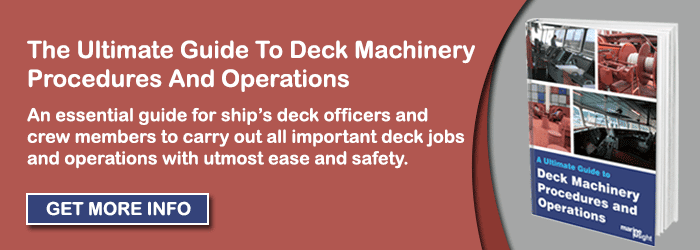
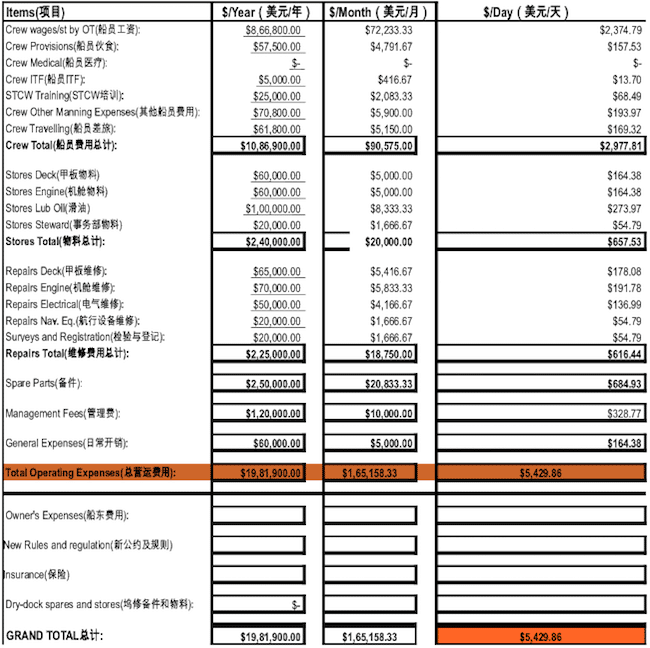
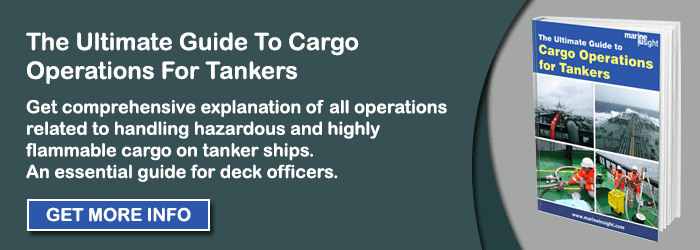


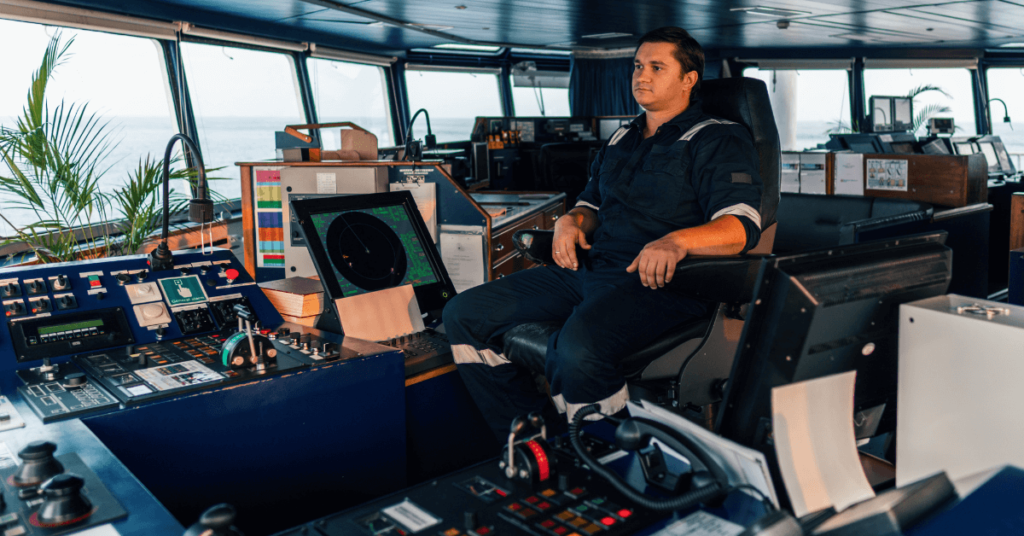
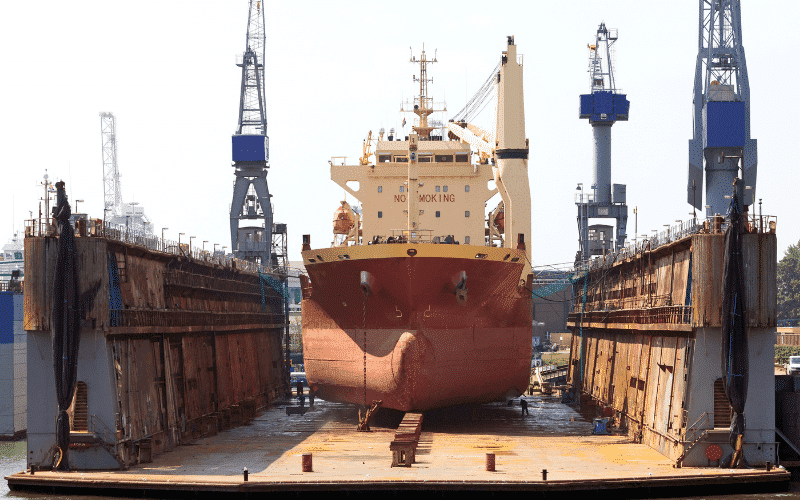
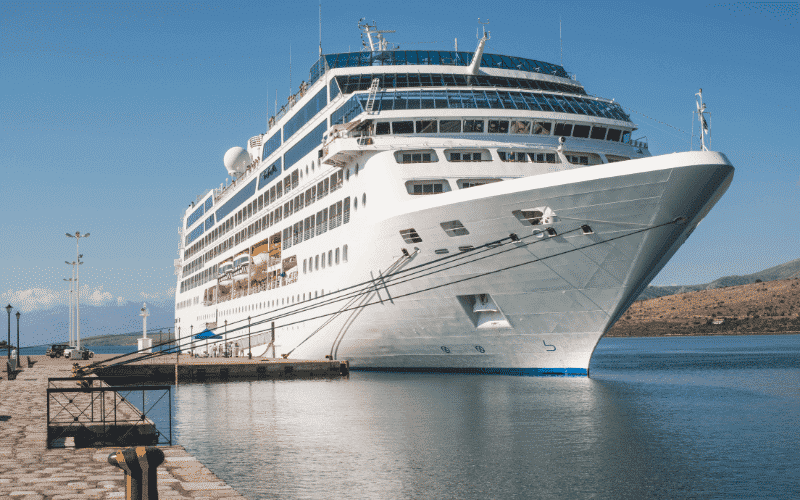
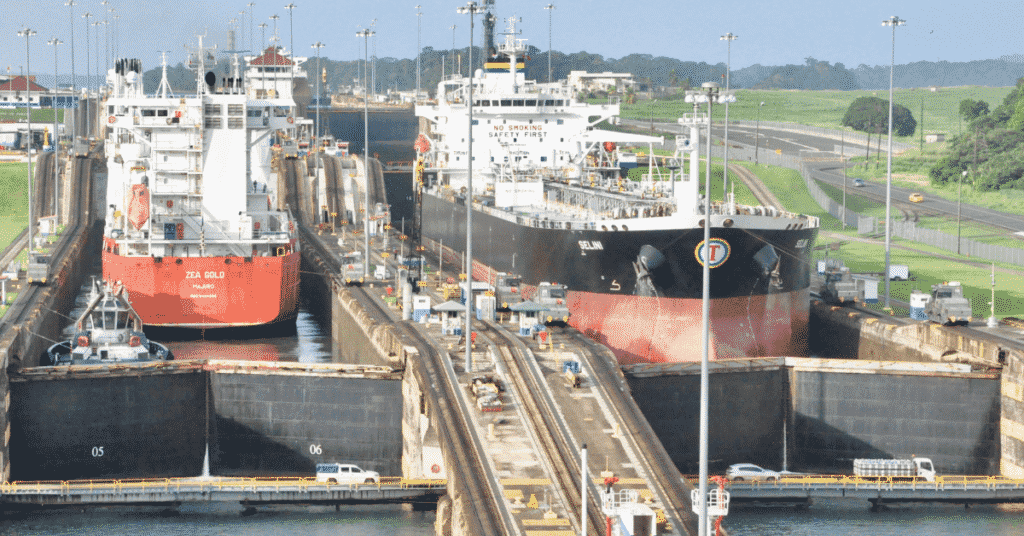



Dear Mr Dsouza,
I just read your article on marineinsight, and found it clear and interessting. I just wanted to know if you have time to answer few questions I have after my reading.
Thank you in advance, kind regards
Sarah Keller